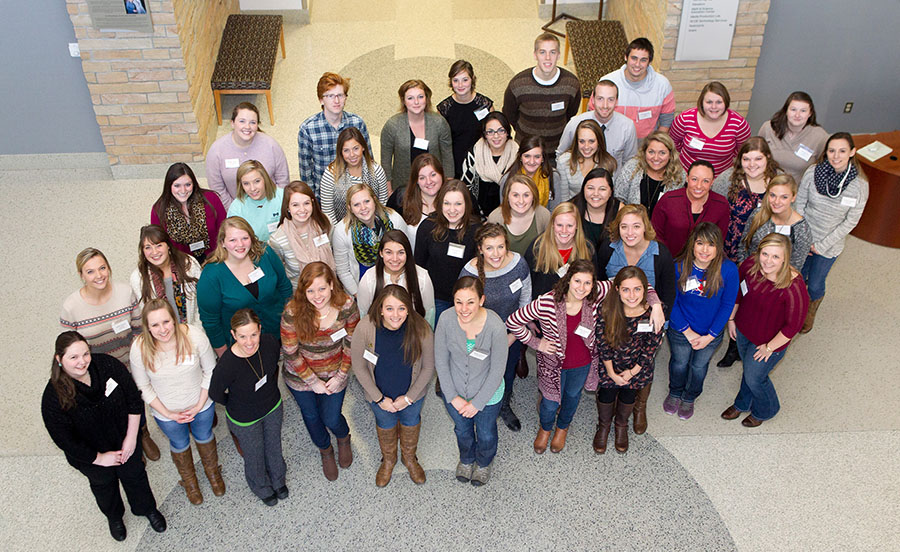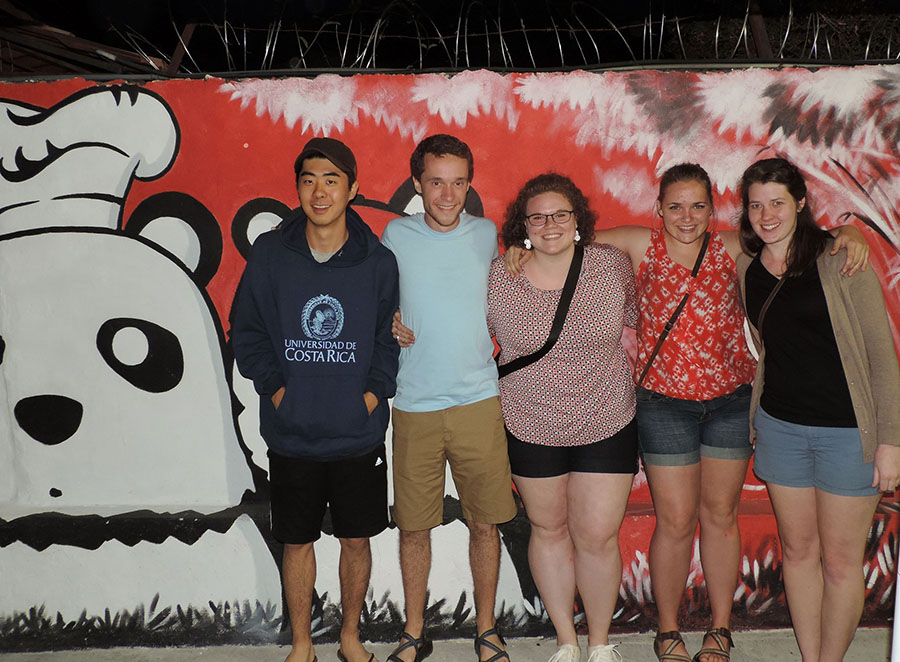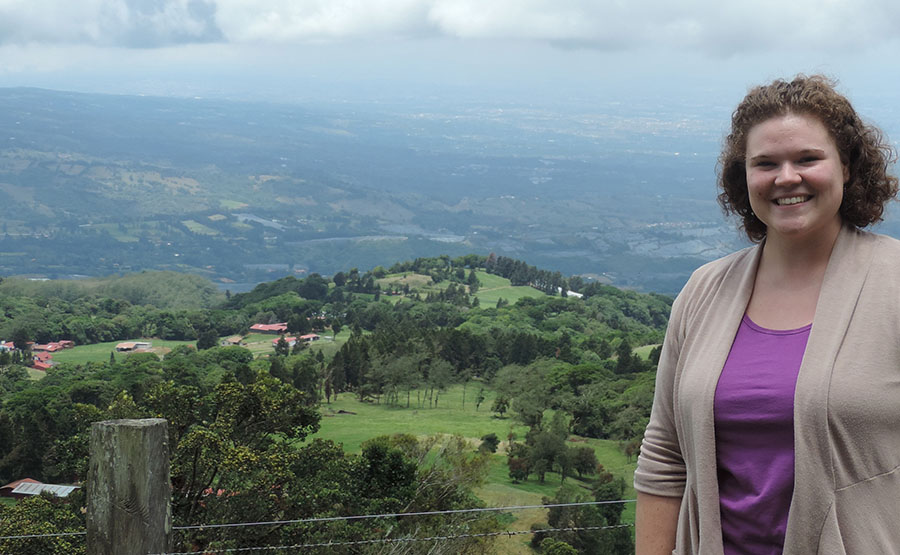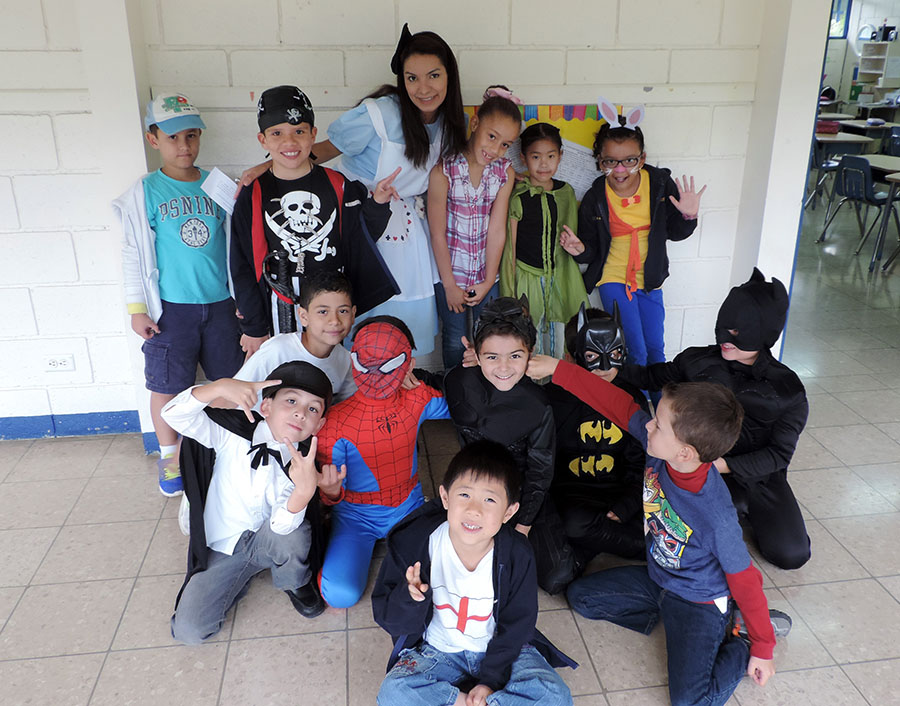BOONE—“Almost home, forever changed” is how Emily Johnson described her international student teaching experience in Costa Rica last spring.
Johnson, who now teaches English at A.C. Reynolds High School near Asheville, detailed her experiences teaching 8- through 12-year-olds in Costa Rica in a blog maintained by the Reich College of Education’s Office of International Student Teaching at Appalachian State University.
“I had never been away from home for that long, let alone out of the country, and I worried a great deal about the things that might change while I was gone,” she wrote. “What I didn’t count on is how much I would change.”
That’s exactly what Dr. William S. Peacock, director of early field experiences at Appalachian, hopes for each of the college’s future teachers who spend five weeks of their student-teaching in an international setting.

Forty-six prospective teachers from Appalachian State University’s Reich College of Education will travel overseas this semester to teach in schools in Costa Rica, England, India, South Africa or Ireland. It’s the largest number of pre-service teachers to date who will add the international experience to their resume. Pictured are students who taught overseas fall semester 2014 and some of those who will teach at an international school this spring. (Photo by Marie Freeman)
“Our goal for them is to have an international experience through which they grow personally and professionally,” Peacock said. “They become a more empathetic individual, which translates into more effective teaching.”
A total of 46 prospective teachers will travel overseas spring semester to teach in schools in Costa Rica, England, India, South Africa or Ireland. It’s the largest number to date who will add the international experience to their resume.
“The credit for the flowering of the international component of our program has to go to Acting Dean Robin Groce,” Peacock said. “As a former classroom teacher, she has a significant interest in wanting our new graduates who will soon have their own classrooms to really appreciate and value diversity in learner populations. There is a concerted effort throughout our teacher preparation programs to try and give our students as much contact with diverse learner populations as possible.”

International student teaching experiences help future teachers grow personally and professionally, according to Dr. William Peacock, director of early field experiences at Appalachian State University. In addition to Costa Rica, students were placed in schools in England, India, South Africa and Ireland. Students from Appalachian who taught in Costa Rica last spring were Brad Beamon, second from left, Emily Johnson, Alison Markey and Rachael Jones. They are pictured with an international student from Korea. (Photo courtesy of Emily Johnson)
Peacock said students who travel overseas aren’t placed in “glitzy schools.” They work in local schools, assisting in needed areas of curriculum identified by administrators of those schools.
“These are local schools in every sense. That is part of the early design of the program – to try to get our students to have genuine experiences with diverse populations of learners globally,” he said.
Students travel as groups or cohorts to their international assignments with never fewer than two placed in an international school or district. Peacock and his colleagues work to ensure that each student has a positive experience.
Students receive on-going support at their host school site by a school principal, a collaborating host teacher, and a host site liaison person who organize student housing, school teaching placements, and other support services.
“The students are sponsored by a school and typically the principal of the school takes on the responsibility of assigning them to a classroom.” Peacock said. “They also act as on onsite professional mentors. In every case those principals are involved in seeing that our students have a really good professional experience within that school setting.”
In Ireland, special education majors have worked in a school interested in moving toward inclusion as a focus of their special education program.
A program piloted fall semester in South Africa included four student teachers who had a specific teaching focus on English language skills development, which was the interest of the faculty and administration in their co-operating school.
Elementary language arts specialist Dr. Beth Frye from the Reich College of Education worked with the students before they traveled to South Africa to explore the cultural nuances they would face. She also traveled with the students to South Africa in order to provide on-site modeling of the team’s Language Experience Approach instruction.
“Partnering a teaching faculty member with our student teacher team was a really rich experience. If we can replicate that model, it will take the student teaching experience to a different level,” said Acting Associate Dean Monica Lambert. “That’s the type of experience we want to bring to our other international sites.”
Other students have taught art, math, social science and music.
To be considered for the international student teaching program, students must have an overall 3.0 grade point average, have had successful clinical and early field experiences, be recommended by their academic advisor and faculty members from their academic area, and receive a recommendation from the school’s International Student Teaching Selection Committee.
Once selected for the international experience, Jean Peacock, international student teaching coordinator, facilitates student placement and orientation to their host schools and to the college’s expectations of them while abroad.
“It’s competitive. We really do want to send the very best of our student teacher candidates abroad,” William Peacock said.
“When you go abroad for five weeks, you put yourself in an alien environment. When you have language challenges and different cultural challenges, you are testing yourself even more. They come back forever changed,” he said.
Senior elementary education major Lydia Newton blogged about her teaching experience in South Africa. “These kids taught me about life. They taught me about appreciating where you come from. Most of all these students taught me how to be the best version of myself,” she said.
“These students gave me the confidence to walk into a classroom and successfully teach not only English but any subject I would ever have to teach. Words cannot describe how much I am taking out of this experience. I know I am coming back to America a changed person, and I am coming back to America a better teacher!”
About Appalachian State University
As a premier public institution, Appalachian State University prepares students to lead purposeful lives. App State is one of 17 campuses in the University of North Carolina System, with a national reputation for innovative teaching and opening access to a high-quality, cost-effective education. The university enrolls more than 21,000 students, has a low student-to-faculty ratio and offers more than 150 undergraduate and 80 graduate majors at its Boone and Hickory campuses and through App State Online. Learn more at https://www.appstate.edu.
What do you think?
Share your feedback on this story.













